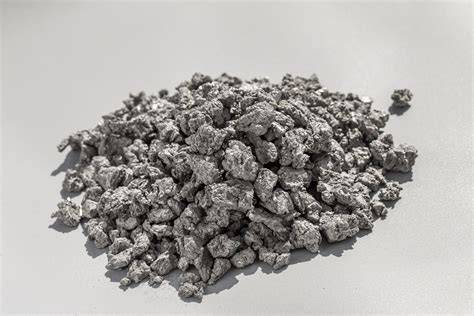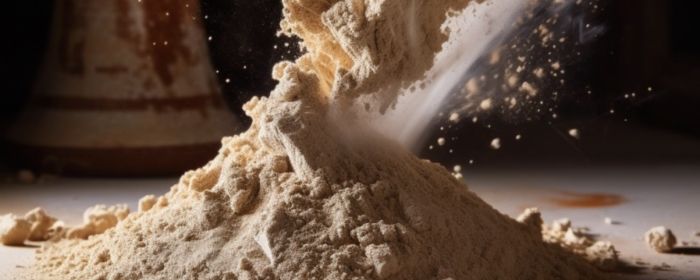

This is a submission for SAM's 2024 Scholarship on spherical powder, written by a Student at the University of Wisconsin-Eau Claire.
This project explores the application of spherical powder technology to enhance the production of biocompatible metal implants for the healthcare industry. With a focus on additive manufacturing, the research aims to optimize the properties of spherical titanium powders to improve the mechanical strength, surface finish, and osseointegration of 3D-printed implants.
The methodology includes advanced powder characterization, flowability assessments, and mechanical testing of printed samples. By fine-tuning these aspects, the project seeks to address current challenges in implant manufacturing, such as reducing material wastage and improving patient outcomes. The significance of this research lies in its potential to revolutionize the production of medical implants, offering more durable and patient-specific solutions in healthcare.
Spherical powder technology has gained prominence in various industries, including aerospace, energy, and biomedical engineering, due to its ability to produce high-quality components through additive manufacturing. The demand for patient-specific implants is growing in healthcare, and additive manufacturing, commonly known as 3D printing, offers a promising solution. This project focuses on optimizing spherical titanium powders to improve the production of biocompatible metal implants, which are crucial for applications like joint replacements, dental implants, and bone scaffolds.
The need for durable and biocompatible implants is paramount in the healthcare industry. Traditional manufacturing methods, such as casting and machining, often result in significant material waste and are limited in producing complex, patient-specific geometries. Additive manufacturing overcomes these limitations by building components layer by layer, directly from digital models. Spherical powders are preferred for this process due to their excellent flowability and packing density, which ensure uniform layer deposition and consistent mechanical properties in the final product.
Titanium and its alloys are widely used in medical implants due to their high strength, low density, and excellent biocompatibility. However, the quality of the powder used in 3D printing can significantly impact the mechanical properties and biocompatibility of the final implant. This project aims to optimize the properties of spherical titanium powders, such as particle size distribution and morphology, to enhance the performance of 3D-printed implants.
The research will be conducted in several key phases:
1. Powder Characterization: The project will begin with a detailed analysis of spherical titanium powders using scanning electron microscopy (SEM) and laser diffraction techniques. These methods will provide insights into the particle size distribution, morphology, and surface texture of the powders, which are critical factors in determining the flowability and packing density.
2. Flowability and Packing Density Assessment: Using a Hall flowmeter, the flowability of the titanium powders will be evaluated. Additionally, the packing density of the powders will be measured to determine how well the particles pack together during the additive manufacturing process. These assessments will help identify the optimal powder characteristics for producing high-quality implants.
3. Additive Manufacturing Process: The characterized powders will be used in selective laser melting (SLM) to fabricate test implants. The process parameters, such as laser power, scanning speed, and layer thickness, will be optimized to achieve the best possible material properties. Special attention will be given to minimizing porosity and improving the surface finish of the implants, which are crucial for their mechanical strength and biocompatibility.
4. Mechanical and Biocompatibility Testing: The printed implants will undergo mechanical testing, including tensile and fatigue tests, to evaluate their strength and durability. Additionally, biocompatibility tests, such as in vitro cell culture studies, will be conducted to assess the implants' suitability for use in the human body. The results will be compared to implants produced by traditional methods to evaluate the benefits of using optimized spherical powders in additive manufacturing.
Preliminary findings suggest that optimizing the particle size distribution and morphology of spherical titanium powders can significantly enhance the flowability and packing density, leading to better surface finish and mechanical properties in 3D-printed implants. For instance, powders with a narrow size distribution and smooth surfaces exhibited superior flowability, resulting in more uniform layer deposition during the printing process.
Furthermore, by fine-tuning the additive manufacturing process parameters, the project has shown a reduction in the occurrence of defects such as porosity, which can compromise the mechanical strength of the implants. The resulting implants demonstrated higher tensile strength and improved fatigue resistance, making them more suitable for load-bearing applications, such as hip and knee replacements.
The project also highlighted the importance of surface finish in promoting osseointegration, the process by which the implant bonds with the surrounding bone tissue. Implants produced with optimized powders showed a smoother surface, which is known to facilitate better bone-implant integration, ultimately improving patient outcomes.
While the results are promising, several challenges remain. One of the main challenges is the high cost associated with producing high-quality spherical titanium powders. Additionally, the scalability of the additive manufacturing process for the mass production of implants needs further exploration.
Future work will focus on reducing the cost of powder production by exploring alternative manufacturing methods, such as plasma spheroidization. Moreover, the project will investigate the long-term performance of the implants in vivo to ensure their safety and efficacy in real-world applications. Expanding the research to include other biocompatible materials, such as cobalt-chrome alloys and biodegradable polymers, will also be a key area of focus.
This project underscores the potential of spherical powder technology to revolutionize the production of biocompatible metal implants through additive manufacturing. By optimizing the properties of titanium powders and refining the manufacturing process, we can produce implants with superior mechanical properties and enhanced biocompatibility. These advancements have the potential to improve patient outcomes and reduce healthcare costs, making this research highly significant for the future of medical implant technology.

United States
.png)



